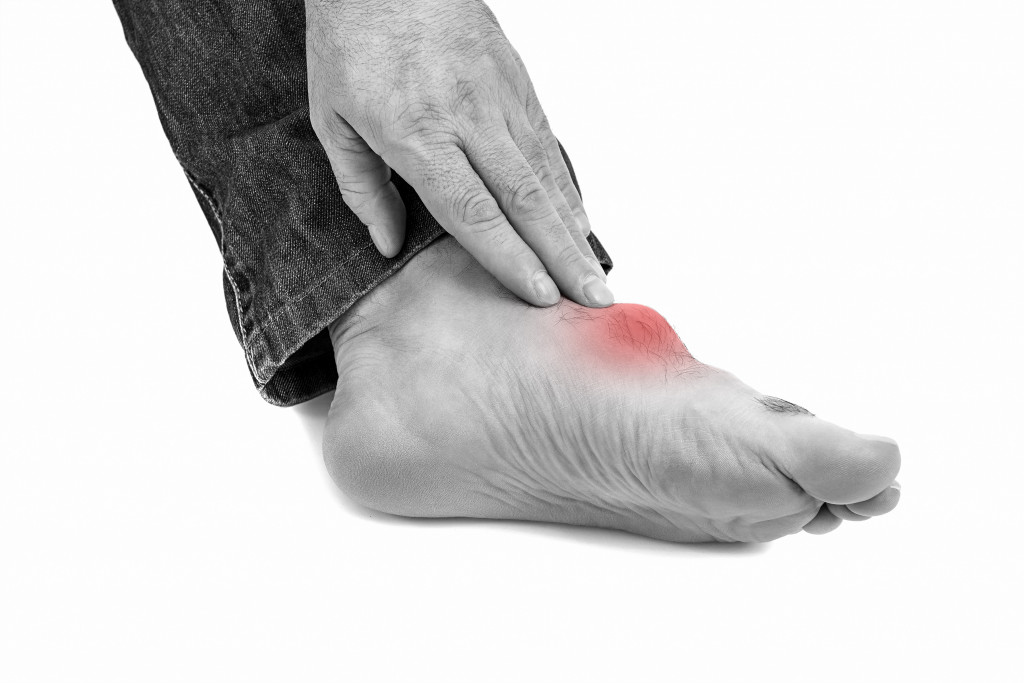- Gout is a form of arthritis caused by uric acid buildup in joints, leading to intense pain and swelling.
- Gout risk factors include age, gender, diet, alcohol consumption, medical conditions, and genetics.
- Treatments for gout include physical therapy, medication, and lifestyle changes such as diet and exercise.
- Making lifestyle changes such as quitting smoking and reducing alcohol consumption can help manage gout symptoms.
- With th
Gout is a painful form of arthritis affecting millions of people worldwide. It is caused by a buildup of uric acid in the body, which can form crystals in the joints. The result is intense pain, swelling, and redness in the affected joint, making it difficult to move or walk. If you or someone you know has been diagnosed with gout, it’s essential to understand what it is, how it’s caused, and what treatment options are available.
What is Gout?
Gout is arthritis that can cause sudden, severe pain attacks, swelling, and joint redness. It is caused by a buildup of uric acid crystals in your joint, which can lead to inflammation and damage. The big toe is the most common joint affected by gout, but it can also affect other joints, such as the ankles, knees, wrists, fingers, and elbows.
Causes of Gout
There are various causes for gout. Here are some risk factors behind it.
Age and Gender
Gout primarily affects men over the age of 30 and women after menopause. The reason for this is that before menopause, women tend to have lower levels of uric acid than men. However, after menopause, women’s uric acid levels tend to rise and become more susceptible to gout. Additionally, men are more likely to develop gout at an earlier age, as they tend to have higher uric acid levels.

Diet
The foods you eat can play a significant role in developing gout. Consuming high amounts of purine-rich foods, such as red meat, seafood, and organ meats, can cause your body to produce excess uric acid. Other foods high in fructose, such as sugary and processed foods, can also increase your risk of developing gout. To prevent gout, eating a balanced diet low in purines and fructose is essential.
Alcohol Consumption
Alcohol can increase your risk of gout in several ways. Firstly, alcohol can increase uric acid production. Secondly, it can interfere with your kidneys’ ability to eliminate excess uric acid. And lastly, alcohol can dehydrate you, which can cause a buildup of uric acid in your body. If you are prone to gout, it is best to avoid or limit your alcohol consumption.
Medical Conditions
Certain medical conditions can increase your risk of gout. These include kidney disease, high blood pressure, diabetes, and obesity. These conditions can affect your body’s ability to eliminate uric acid, leading to an excess buildup of uric acid in the body. This can then affect various joints and then lead to gout.
Genetics
Lastly, genetics can also play a role in gout. You are more likely to develop this condition if you have a family history of gout. Additionally, certain genetic mutations can affect how your body produces or eliminates uric acid, increasing your risk of gout.
How to Deal With Gout
Gout can be a painful and debilitating condition. Fortunately, various treatment options are available to help manage gout symptoms. Speaking to your doctor about which treatments will be best for you is important. Here are some common options:

Therapy
Various therapies are available to people with gout. An experienced physical therapist can offer these therapies so you manage your pain and swelling. They may suggest stretching, strengthening exercises, heat/ice therapy, and other techniques to help reduce your gout symptoms.
Medications
Your doctor may prescribe medications to treat the inflammation and pain associated with gout. These drugs can also help reduce uric acid levels in the blood, reducing the risk of future attacks. Common medications used to treat gout include nonsteroidal anti-inflammatory drugs (NSAIDs) and corticosteroids.
Lifestyle Changes
Making lifestyle changes can also help manage gout symptoms. Eating a balanced diet low in purines and fructose, limiting alcohol consumption, drinking plenty of water, and getting regular physical activity are all crucial for controlling uric acid levels. Additionally, quitting smoking may reduce your risk of having gout episodes.
Gout is a painful condition that affects millions of people worldwide. However, with the right information and treatment options available, it is possible to manage this medical condition effectively. By understanding what causes gout and making the necessary lifestyle changes, you can prevent flare-ups and keep your symptoms under control.




